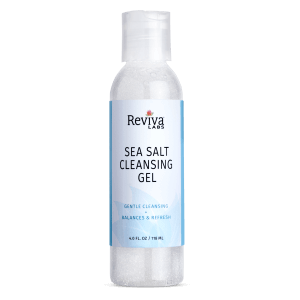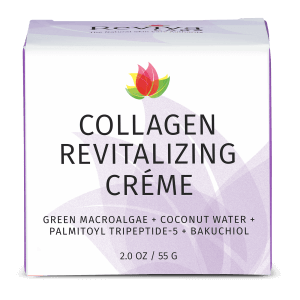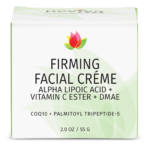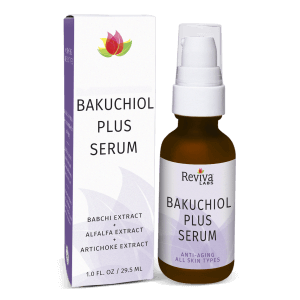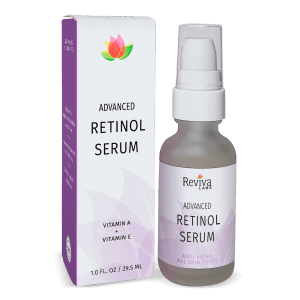Reviva Labs, Skin Care
How To Get The Glowing Skin You Want
Healthy, glowing skin is a universal desire. It’s a sign of health and vitality that transcends age and gender. Achieving that radiant glow is not as elusive as it may seem. With the right approach and consistency, anyone can improve their skin’s appearance.
Hydration: The Foundation of Glowing Skin
Glowing skin starts from within. Hydration is crucial. Drinking plenty of water ensures your skin is well-hydrated, which helps maintain its elasticity and softness. According to a study by the University of Missouri-Columbia, staying hydrated can significantly improve the skin’s appearance and health. Aim for at least eight glasses of water a day to keep your skin looking its best. Additionally, a balanced diet rich in fruits, vegetables, and healthy fats can provide the essential nutrients your skin needs to stay healthy and radiant.
The Importance of Proper Cleansing
Proper cleansing is the foundation of any skincare routine. Removing dirt, oil, and makeup from your skin daily prevents clogged pores and breakouts. Use a gentle cleanser that suits your skin type to avoid irritation. Over-cleansing can strip your skin of its natural oils, leading to dryness and sensitivity. It’s important to find a balance that works for you.
The Benefits of Exfoliation
Exfoliation is another key step in achieving glowing skin. By removing dead skin cells, exfoliation reveals the fresh, new skin beneath. However, it’s essential to exfoliate gently. Over-exfoliating can cause redness and damage. Aim to exfoliate once or twice a week, depending on your skin’s sensitivity. Using a gentle exfoliant can help you achieve smoother, brighter skin without irritation.
Moisturizing for Hydration and Protection
Moisturizing is crucial for maintaining skin hydration and creating a protective barrier against environmental stressors. Choose a moisturizer that matches your skin type, whether it’s oily, dry, or combination. Ingredients like hyaluronic acid can attract moisture to the skin, keeping it plump and hydrated. Even oily skin needs moisturizer to maintain balance and prevent the overproduction of sebum.
Sun Protection: A Non-Negotiable Step
Sun protection is non-negotiable for healthy, glowing skin. The sun’s UV rays can cause premature aging, hyperpigmentation, and even skin cancer. Applying a broad-spectrum sunscreen with an SPF of at least 30 every day, regardless of the weather, is essential. Reapply every two hours when spending extended periods outdoors. This simple step can protect your skin from harmful rays and prevent future damage.
Nourishing Your Skin from the Inside
Diet plays a significant role in the health of your skin. Consuming a diet rich in antioxidants, vitamins, and minerals can help protect your skin from damage and promote a healthy glow. Foods high in Vitamin C, such as oranges and strawberries, can boost collagen production, while Vitamin E-rich foods like almonds and avocados can protect against oxidative stress. Omega-3 fatty acids found in fish and flaxseed can help maintain the skin’s barrier and hydration levels.
Managing Stress for Better Skin
Stress management is often overlooked in skincare but plays a crucial role in maintaining healthy skin. Stress can trigger skin issues like acne, eczema, and psoriasis. Incorporating stress-reducing activities into your daily routine, such as yoga, meditation, or even simple breathing exercises, can have a positive impact on your skin. Ensuring you get enough sleep each night is also vital, as it allows your skin to repair and regenerate.
The Role of Exercise in Skin Health
Exercise can also contribute to glowing skin. Physical activity increases blood flow, which helps nourish skin cells and keep them healthy. Exercise also helps flush out toxins through sweat, which can help clear pores and reduce the occurrence of acne. Aim for at least 30 minutes of moderate exercise most days of the week to see benefits not just for your skin but for your overall health.
Choosing the Right Skincare Products
Choosing the right skincare products is essential. Look for products that contain ingredients known for their skin-boosting properties, such as antioxidants, peptides, and ceramides. Avoid products with harsh chemicals and fragrances that can irritate your skin. Patch testing new products before fully incorporating them into your routine can help prevent adverse reactions.
The Benefits of Regular Facials
Regular facials can also be beneficial. Professional facials can address specific skin concerns and provide a deeper cleanse than your at-home routine. They can also include treatments like masks, peels, and extractions that can enhance your skin’s appearance. However, it’s important to choose a reputable esthetician and communicate your skin’s needs and sensitivities.
Avoiding Harmful Habits
Avoiding harmful habits is just as important as following a good skincare routine. Smoking, excessive alcohol consumption, and lack of sleep can all negatively impact your skin’s appearance. Smoking can cause premature wrinkles and a dull complexion, while alcohol can dehydrate your skin and cause inflammation. Prioritizing sleep allows your skin to repair and regenerate, which is essential for maintaining a healthy glow.
Protecting Your Skin from Environmental Factors
Environmental factors also play a role in skin health. Pollution and harsh weather conditions can damage your skin barrier and cause issues like dryness and breakouts. Protecting your skin by wearing protective clothing, using a humidifier in dry conditions, and applying antioxidant-rich skincare products can help mitigate these effects.
Consulting with a Dermatologist
Consulting with a dermatologist can provide personalized guidance for achieving glowing skin. A dermatologist can help identify your skin type and any underlying conditions that may be affecting your skin’s appearance. They can also recommend treatments and products tailored to your specific needs, helping you achieve the best results.
Patience and Consistency in Your Skincare Routine
Patience and consistency are key when it comes to skincare. It can take time to see noticeable improvements, and it’s important to stick with your routine. Avoid switching products too frequently, as this can irritate your skin and delay results. Keeping track of your progress can help you stay motivated and adjust as needed.
Embracing Confidence and Positivity
Finally, loving the skin you’re in is crucial. Confidence and a positive mindset can reflect in your appearance. Embrace your unique features and focus on feeling good about yourself. Healthy, glowing skin is not just about appearance; it’s about taking care of yourself and feeling confident in your skin.
Achieving glowing skin is a multifaceted process that involves a combination of internal and external factors. By staying hydrated, following a consistent skincare routine, protecting your skin from the sun, eating a balanced diet, managing stress, exercising regularly, and avoiding harmful habits, you can improve your skin’s health and appearance. Remember to be patient and consistent and consult with a dermatologist for personalized advice. With dedication and the right approach, you can achieve the glowing skin you desire.







